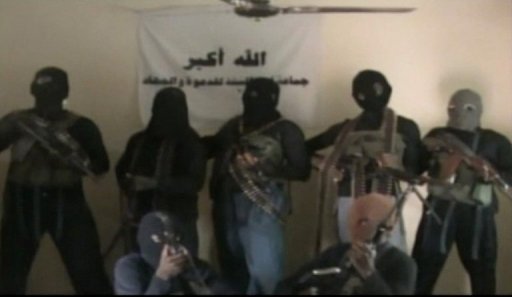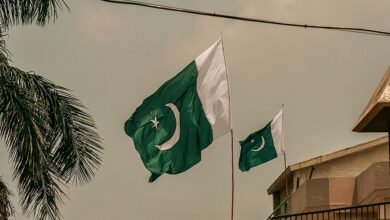
The latest deadly attacks by an Islamist sect in northern Nigeria, including multiple suicide bombings, point to the group's growing determination to take on the government, analysts said on Monday.
The coordinated attacks that shook Nigeria's northeast on Friday, killing at least 150, also show that the sect's radicalization has reached new heights.
At least five suicide bombers were involved in the attacks that targeted police stations, churches and a military base in two northeastern states of Borno and Yobe.
"The truth of the matter is we are [now] faced with armed insurgency," said northern-based rights activist Shehu Sani, of the Civil Rights Congress group.
Long seen as a local group based in the northeast where it is normally active, attacks by Boko Haram have recently grown in size and sophistication, targetting symbolic institutions or occasions.
There have also been growing concerns that the sect has begun cooperating with other extremist groups outside Nigeria, including Al-Qaeda's north African branch, known as Al-Qaeda in the Islamic Maghreb.
"I have strong suspicion that [the attack] has international dimensions, but we don't have any concrete proof," said Olu Obafemi, a researcher at Nigeria's respected National Institute for Policy and Strategic Studies.
He said the sect's "boldness" in claiming responsibility for the attacks "gives an impression of echoes of an international ring."
When claiming responsibility, Boko Haram spokesman Abul Qaqa warned: "We will continue attacking federal government formations until security forces stop persecuting our members and vulnerable civilians."
The sect, which was created in 2004 and wants to see the establishment of an Islamic state in predominantly Muslim northern Nigeria, staged an uprising which was brutally put down by security forces in 2009.
Then it was armed only with guns, targeting police, soldiers or community leaders. In recent months it has turned to bombs.
It also claimed a suicide bombing at the UN building in Abuja which killed 24 people in August.
But the sect's true objectives remain a matter of debate, given that civilians walking the dusty streets of the sleepy town of Damaturu were also killed.
"People in southern Nigeria talk of these attacks as being designed to Islamize the country, but the greatest casualties are from the [Muslim] north," said Chidi Odinkalu, of the Open Society Justice Initiative, a rights NGO.
"So it's not possible to look at this as an effort to proselytize the country, so I can't make sense of it."
Onah Ekhomu, a Lagos-based independent security expert sees their only goal as nothing but "anarchy."
The latest attack, said Ekhomu, perhaps also indicates "the increasing of the stakes".
"It appears they are saying 'we are not being heard' … so they are upping the ante by causing large numbers of civilian casualties.
The movement is believed to have a number of factions, something which does not help to shed clear light on its goals, with some analysts not ruling out "wider political objectives."
Some doubt the Nigerian government will be able to effectively quell the sect.
"The government has insisted on using the military option to bring Boko Haram's insurgency down, and Boko Haram on the other side has proven to be more determined and committed to their own struggle," said Sani.
A Western diplomat said, "The threat has obviously heightened, but the question is the response."
But Ekhomu does not believe the sect could "overrun Abuja and take power."
President Goodluck Jonathan, a Christian from the south, faced strong opposition to his candidacy in the north ahead of elections last April, when his main opponent was the Muslim former northern military ruler Muhammadu Buhari.
When Jonathan won, riots broke out claiming some 800 lives across several northern states.
The country's 160 million population is roughly divided between the mainly Muslim north and predominantly Christian south, among some 250 ethnic groups.




